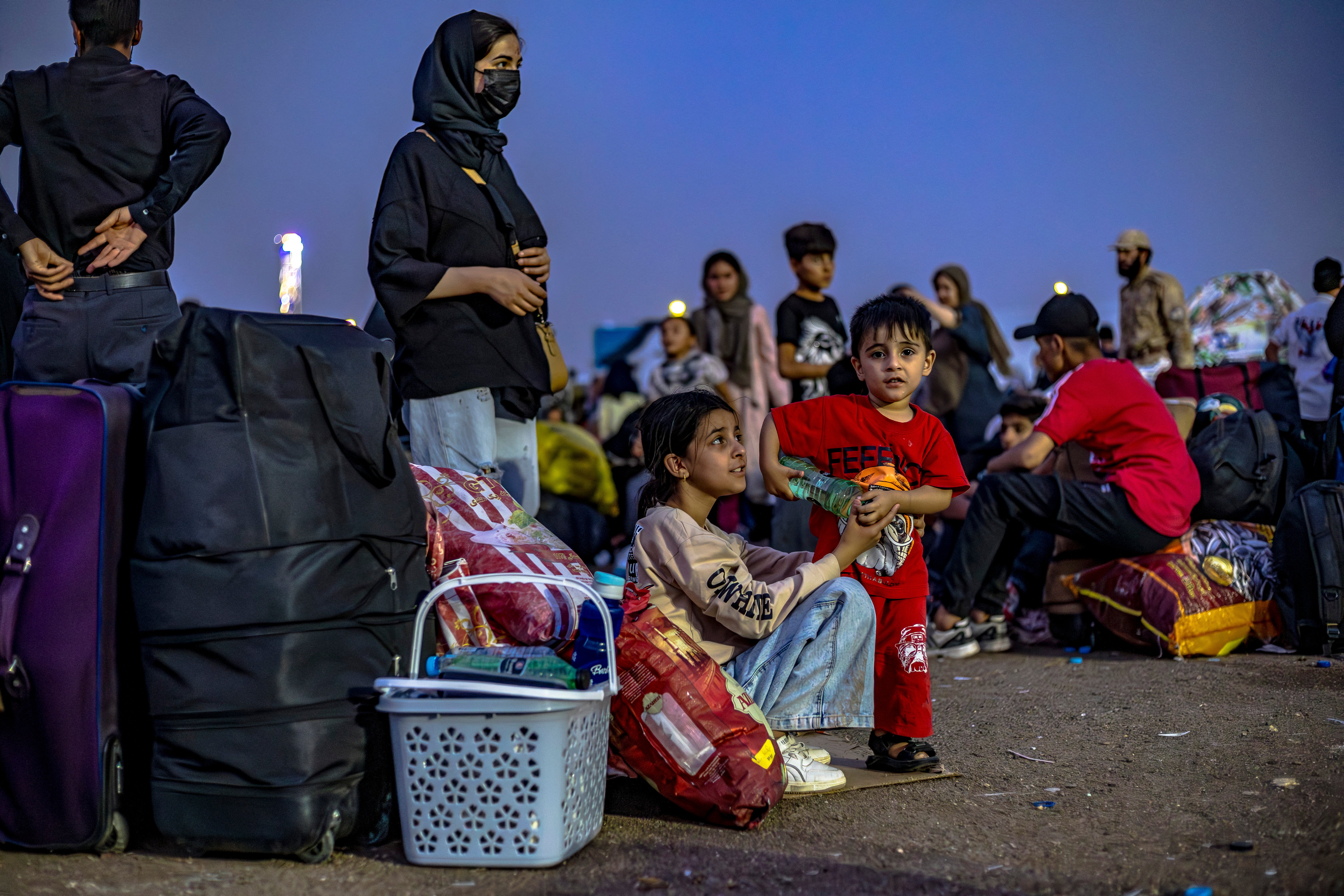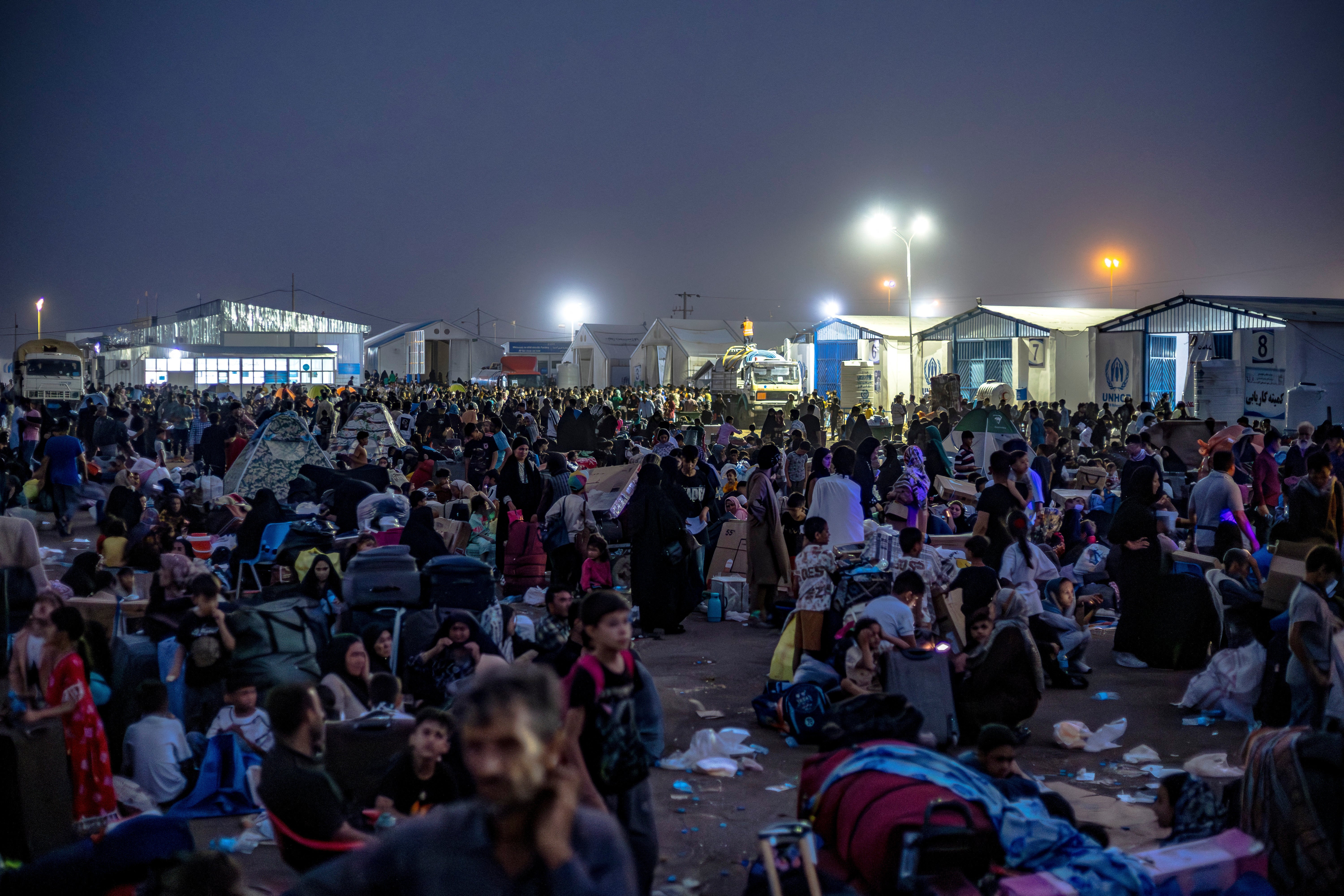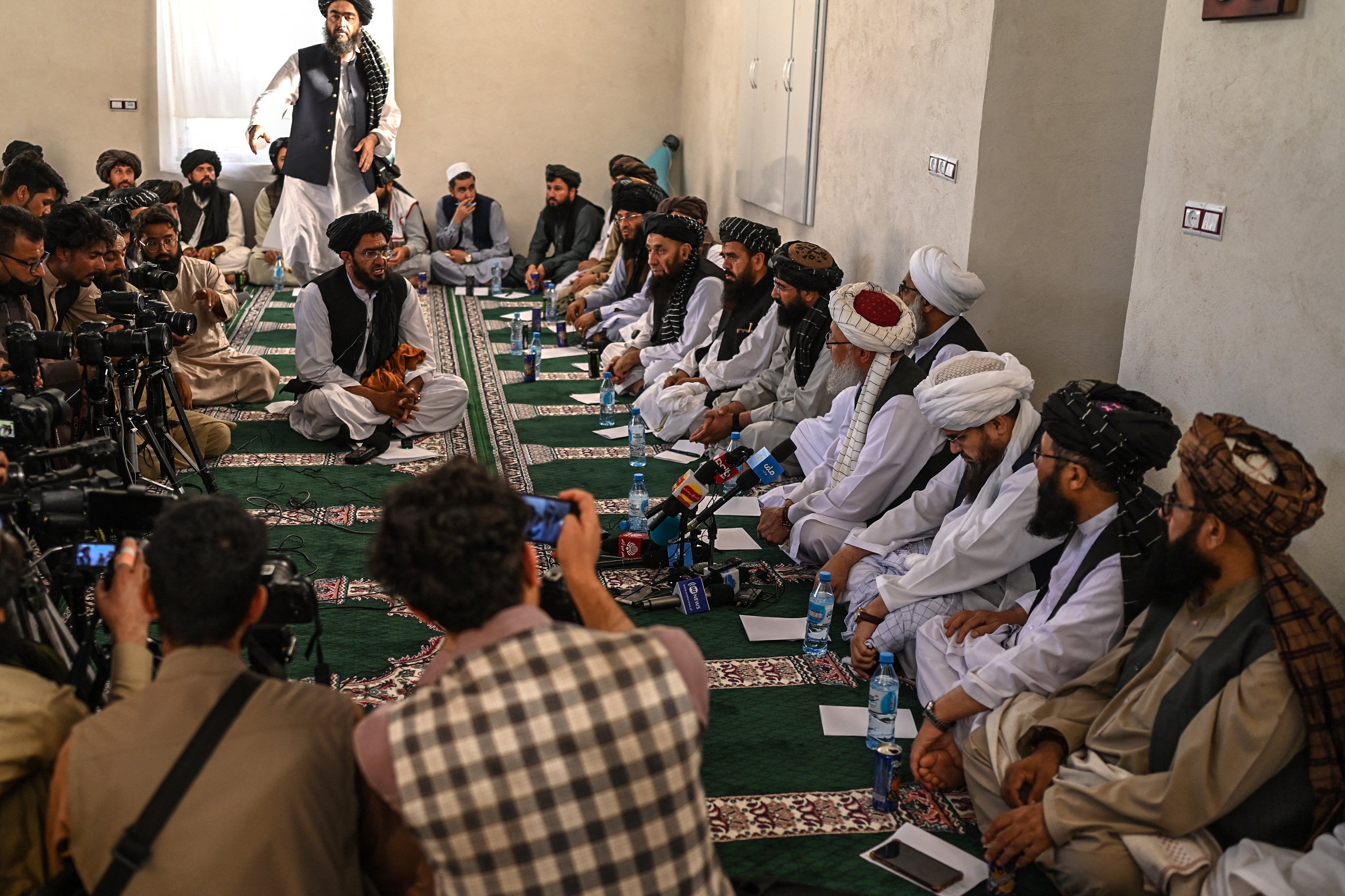All countries should stop forcibly sending vulnerable Afghan nationals back to their homeland under the Taliban regime, the UN’s mission in Afghanistan said today, as it warned about the threat of arrest, torture and abuse these citizens face.
The United Nations Assistance Mission in Afghanistan (Unama) said it had documented evidence that forced returnees, deported against their will in large numbers by countries including Iran and Pakistan in recent months, have been targeted by the Taliban regime and face serious human rights violations.
The report came just three days after the Trump administration lifted legal protections for Afghan nationals that prevented them being deported from the US.
The Unama report, shared with The Independent, found that women and girls, journalists and activists and former security or government officials were at the highest risk of reprisals from the Taliban upon their return to the country.
More than 1.4 million people have returned or been forced to return to Afghanistan this year alone, including over one million from Iran. Millions of Afghans fled their homeland in July and August 2021 as the Nato-backed government fell and Taliban militants swept to power in Kabul.

The UN said the rapid pace and volume of Afghans being sent back from other nations was creating a multi-layered human rights crisis. With Afghanistan’s formal economy almost non-existent under the Taliban, returnees are living in NGO-run camps and forced to rely on humanitarian aid to survive.
Although the Taliban has previously offered an amnesty to those from the Nato-backed government and said it would not hunt them down, the new report shows that it continues to target its critics from the previous administration with arbitrary detention, physical assault and torture tactics such as mock executions and waterboarding.

“Nobody should be sent back to a country where they face risk of persecution on account of their identity or personal history,” UN human rights chief Volker Türk said. “In Afghanistan, this is even more pronounced for women and girls, who are subjected to a range of measures that amount to persecution on the basis of their gender alone.”
Unama noted that sending people back to a country “where they are at risk of persecution, torture or other cruel, inhuman or degrading treatment or punishment, enforced disappearance or other irreparable harm, is in violation of the principle of non-refoulement and a serious breach of international law”.
Some of those already forcibly returned to Afghanistan told UNAMA about the abuse they had faced.
Two months after Abdul*, a former government official, returned to Afghanistan in late 2023, he was arrested by Taliban militants and was subjected to vicious torture that culminated in his leg being broken.
He was arrested on his way to a grocery store and detained in a house for two nights where he was beaten with sticks, cables and wood. Abdul said the Taliban officials cut off his hair and he was forced to watch a “mock execution”, mimicking the killing of those arrested by the de facto officials. He said he was also subjected to waterboarding.
A former female journalist who was sent back to Afghanistan told UN officials she was “effectively under house arrest” as the Taliban authorities have banned women from public spaces, job opportunities and moving around without a male guardian.
“There are no job opportunities, no freedom of movement, and no access to education, either to learn or to teach, for women and girls,” she said.
Another woman sent back to Afghanistan against her wishes told Unama that she is now dependent on a family that is not her own and has no financial means to support herself.
“I live with my uncle’s friend. My uncle from Kabul sends them 3000-4000 Afghanis (£32-£42) for my expenditures. But I never get to see the money. I am completely hidden, without any support, any assistance… I cannot travel anywhere. I do not have a mahram (male guardian). This is the biggest dilemma and challenge for me, that my sister and I are without any male companion. So we cannot move,” she told Unama.
In its message to the international community, Unama said: “Member States should refrain from returning Afghan migrants and refugees to Afghanistan in the absence of an individualised assessment to ensure their return is not a violation of their human rights.”

Officials at the UN agency told The Independent the outlook for returnees was “extremely negative” given the state of Afghanistan’s economy and a humanitarian crisis exacerbated by natural disasters such as cyclical droughts and floods.
They also pointed to a loss of aid support for the agencies dealing with these crises since the US and other Western nations announced cuts, with one Unama source noting that there were not enough “resources available to fulfil basic health functions, whether that’s maternal health or whether that’s health across the population. To add to that, the UN and other international NGOs have been hit by a significant decrease in funding.”
The Taliban’s foreign affairs ministry, interior affairs ministry and its intelligence wing rejected the allegations of ill-treatment and prison torture presented by Unama in their report.
“No former military or civilian individual has been arrested solely because of their previous affiliation,” the foreign affairs ministry said, according to their response to the report seen by The Independent.
Foreign ministry officials in Iran and Pakistan have defended their policies for returning Afghan citizens, saying this was done so with humanitarian principles kept in consideration.



